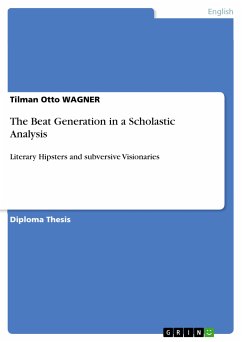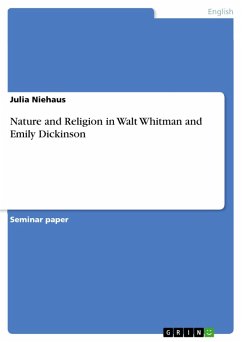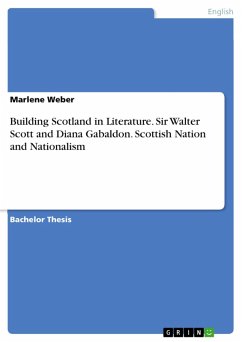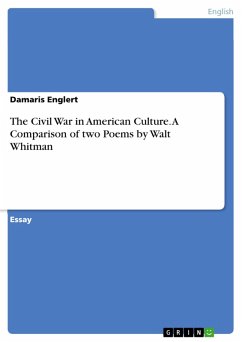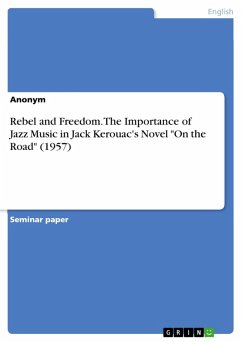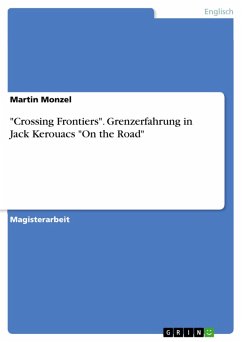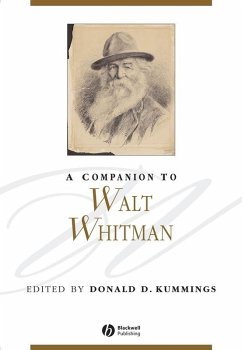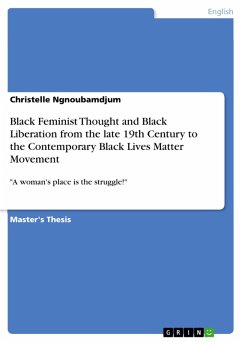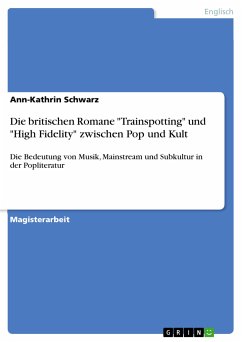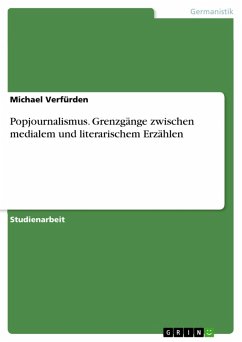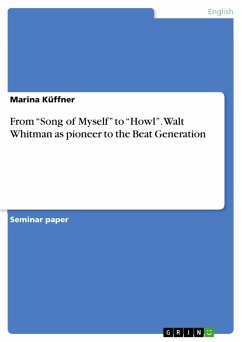
From "Song of Myself" to "Howl". Walt Whitman as pioneer to the Beat Generation (eBook, PDF)
Sofort per Download lieferbar
Statt: 17,95 €**
13,99 €
inkl. MwSt. und vom Verlag festgesetzt.
**Preis der gedruckten Ausgabe (Broschiertes Buch)
Alle Infos zum eBook verschenkenWeitere Ausgaben:

PAYBACK Punkte
0 °P sammeln!
**Preis der gedruckten Ausgabe (Broschiertes Buch)
Seminar paper from the year 2009 in the subject American Studies - Literature, grade: 1,3, University of Frankfurt (Main) (Institut für England- und Amerikastudien), course: Life and Letters in the 19th Century, language: English, abstract: Allen Ginsberg was deeply influenced by Walt Whitman, especially by Whitman's major work "Song of Myself". They both were poets who tried to be a voice for the people, and who wanted to experience closeness in a time of growing distance between the people. This paper will compare Walt Whitman's "Song of Myself" with Allen Ginsberg's "Howl" concerning their...
Seminar paper from the year 2009 in the subject American Studies - Literature, grade: 1,3, University of Frankfurt (Main) (Institut für England- und Amerikastudien), course: Life and Letters in the 19th Century, language: English, abstract: Allen Ginsberg was deeply influenced by Walt Whitman, especially by Whitman's major work "Song of Myself". They both were poets who tried to be a voice for the people, and who wanted to experience closeness in a time of growing distance between the people. This paper will compare Walt Whitman's "Song of Myself" with Allen Ginsberg's "Howl" concerning their intention as well as their big similarities of style and themes, even though there is nearly a century between their works. The lack of regularity and the many sexual metaphores in Whitmans lyric can also be seen in Ginsberg's poem about his experiences with drug use and its consequences. Like Whitman broke with the traditional rules of his time, Ginsberg and several of his writer friends did in the midth of the twentieth century. Pieces like "Howl", Kerouac's "On the Road" or William Burroughs's "Naked Lunch" were a wake-up call for the American people to think about the development of the American society. Whitman, on his account, gave an overview about the diversity of the American people and wanted to support the Democratic beliefs with his epic poem. Thus, both wanted to change the traditional, comformist paths of American politics and human interaction. Both works shocked their surroundings profoundly. This paper will place the analysis of the two poems in the historic content and focus on criterias like style, intention and political background. Ginsberg and Whitman both used non-metric verses to support their cry for political and sexual freedom, and their main focus was the 'male comradeship' or 'ahesiveness', the love they seeked and could not find in their environment. For that reason this paper will first concentrate on Whitman and Ginsberg's perspectives and surroundings to see why these two poets share a special bond.
Dieser Download kann aus rechtlichen Gründen nur mit Rechnungsadresse in A, B, BG, CY, CZ, D, DK, EW, E, FIN, F, GR, HR, H, IRL, I, LT, L, LR, M, NL, PL, P, R, S, SLO, SK ausgeliefert werden.




